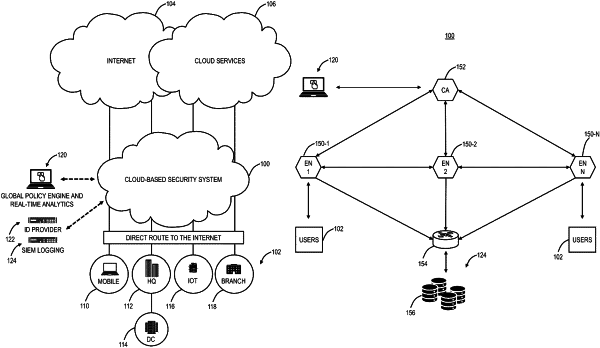| CPC G06F 21/565 (2013.01) [G06F 21/53 (2013.01); G06N 20/00 (2019.01); G06F 2221/033 (2013.01)] | 17 Claims |

|
1. A non-transitory computer-readable storage medium having computer-readable code stored thereon for programming one or more processors in a cloud-based system to perform steps of:
responsive to training a machine learning model with a combination of knowledge features and non-knowledge features, wherein the knowledge features include features associated with executable files determined to be effective for training, and wherein non-knowledge features include n-grams, entropy, and file size, receiving the machine learning model;
performing inline monitoring of production traffic between users, the Internet, and cloud services;
utilizing the trained machine learning model to inspect files in the production traffic; and
classifying the traffic as one of malicious or benign based on the trained machine learning model.
|